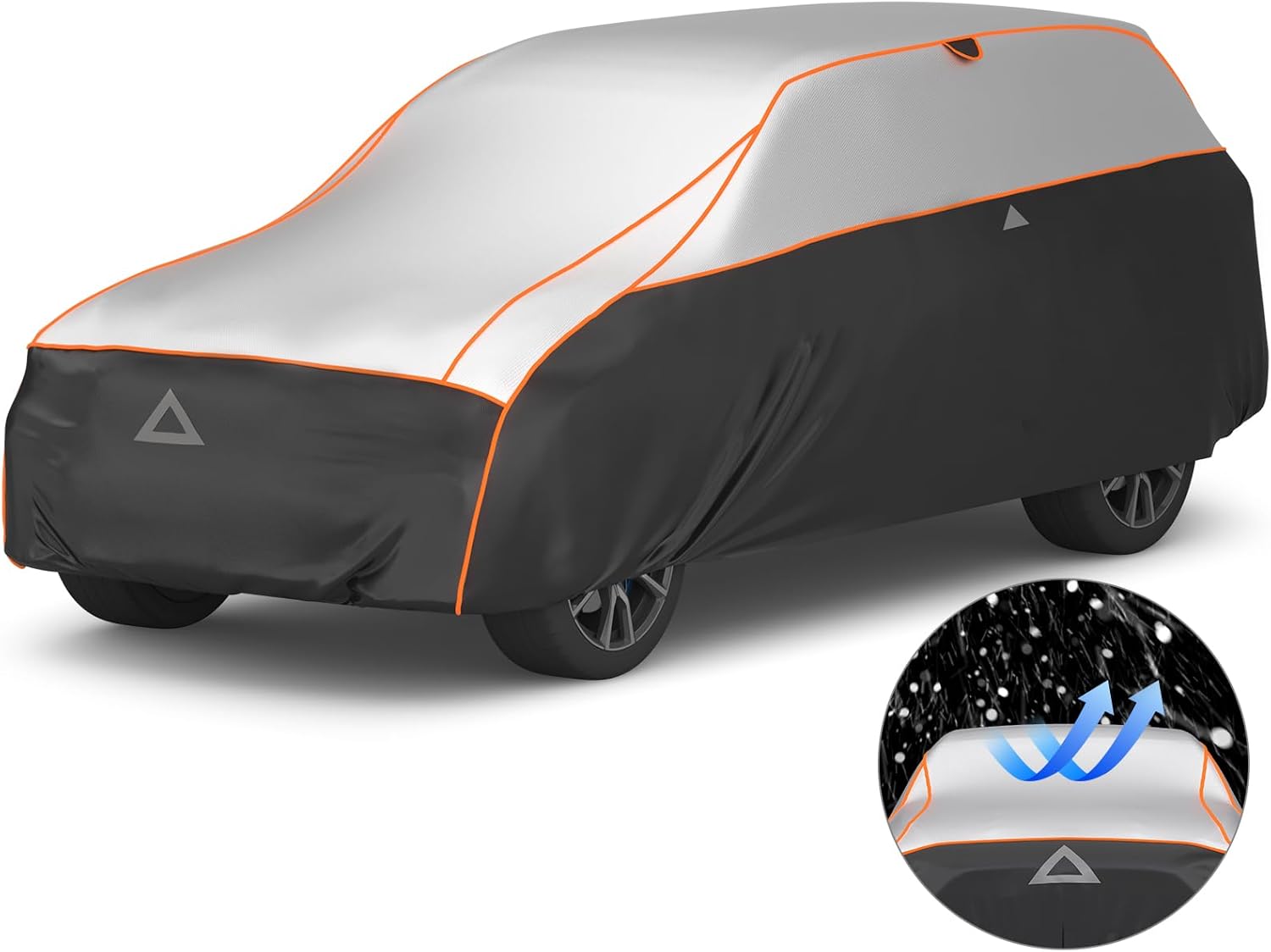Will My Insurance Go Up If Someone Hits My Parked Car?
Direct Answer: Generally, no. If someone hits your legally parked car and they are identified, your insurance rates should not go up. This is a classic “not-at-fault” accident, and the claim should be paid by the at-fault driver’s insurance. However, if the person drives away (a hit-and-run), the situation becomes more complex and could potentially impact your policy.
There are few things more infuriating than returning to your car to find a crumpled bumper or a long, deep scratch down the side. You did everything right—you parked correctly and went about your day. Now you’re left with damage and a dozen questions. Will my insurance cover this? Do I have to pay? And the biggest question of all: will my rates skyrocket because of someone else’s mistake? This guide will walk you through every possible scenario.
The Golden Rule: At-Fault vs. Not-At-Fault Claims
Insurance companies primarily determine rate increases based on fault. An “at-fault” accident means you were responsible, and this is what typically leads to a surcharge on your premium. A “not-at-fault” accident means another party was responsible.
When your car is legally parked, it cannot be at fault for an accident. Therefore, any claim you file for this damage should be classified as a not-at-fault claim. Most states have laws or regulations that prohibit insurance companies from raising your rates for a not-at-fault claim. This is the bedrock principle that governs this entire situation.
Scenario 1 (Best Case): The Driver Leaves a Note
You return to your car and find a note on the windshield with a name, phone number, and insurance information. This is the ideal outcome. Here is what happens next:
- You file a “third-party claim” directly with the at-fault driver’s insurance company.
- Their Property Damage Liability coverage is responsible for 100% of the repair costs.
- You pay NO deductible. The at-fault party’s insurance covers the full cost of repairs.
- Your insurance company doesn’t need to be heavily involved, and since you’re not filing a claim on your own policy, your rates will not increase. This is a clean, straightforward process.
Scenario 2 (Worst Case): A Hit-and-Run
This is the most common and frustrating version of events. You return to find damage but no note, no witnesses, and no idea who did it. The responsible party has vanished. Now, you must turn to your own insurance policy. Here’s how it works:
How Your Own Policy Covers It:
You have two potential coverages that can apply here, depending on your policy and your state:
- Uninsured Motorist Property Damage (UMPD): This coverage is specifically designed for this situation. A hit-and-run driver is treated as an “uninsured motorist.” UMPD is required in some states and optional in others. It often has a lower deductible than collision coverage (e.g., $100 or $250). If you have UMPD, you should use it.
- Collision Coverage: If you don’t have UMPD, or it’s not available in your state, you must use your own collision coverage to repair your car. This is the same coverage you would use if you caused an accident. You will have to pay your standard collision deductible (e.g., $500 or $1,000) out of pocket before your insurance pays the rest.
Will My Rates Go Up in a Hit-and-Run?
This is the critical question. While it is still a not-at-fault accident, filing a claim, particularly a collision claim, can sometimes have an impact. Insurers can’t surcharge you for the accident itself, but they might see a pattern of claims that could lead them to view you as a higher risk over the long term. In some cases, filing a claim could cause you to lose a “claims-free” discount. If you’re already worried and asking yourself, “**why is my car insurance so high?**”, the potential loss of a discount is something to consider before filing a claim for minor damage.
Your Step-by-Step Action Plan After Discovering Damage
Discovering damage is jarring. Take a deep breath and follow these steps methodically to build the strongest possible case for your claim.
- Do Not Move Your Car (If Safe). The position of your car in the parking spot is evidence that you were parked correctly.
- Look for Witnesses and Cameras. Scan the area immediately. Is there a nearby business with a security camera facing the lot? Did anyone in a neighboring car see what happened? Get their contact information. A witness or video footage can turn a hit-and-run into an identifiable-driver claim.
- Document Everything. Use your phone. Take wide-angle shots of your car and its position. Then take numerous, detailed photos of the damage from every angle. Look for paint transfer from the other vehicle. Take a video walking around your car.
- File a Police Report. This is absolutely critical, especially for a hit-and-run. Many insurance companies will not process an Uninsured Motorist claim without an official police report. Call the non-emergency police line to have an officer come to the scene or to file a report online.
- Call Your Insurance Agent for Advice. Before you officially file a claim, call your agent. Explain the situation and the extent of the damage. They can advise you on whether it makes sense to file a claim based on your deductible and specific policy.
What If the Damage is Severe?
Sometimes, a hit in a parking lot can be surprisingly forceful, leaving your car with a broken axle or other damage that makes it undrivable. In this situation, you’ll need to get it to a body shop safely.
- Roadside Assistance: This is where a good roadside assistance plan is invaluable. Services like your insurer’s own plan or a third-party service can dispatch a tow truck quickly. When comparing options like **Geico Roadside vs AAA**, consider their response times and coverage limits.
- Insurance Coverage for Towing: If you have comprehensive and collision coverage (often called “full coverage”), it typically includes some reimbursement for towing costs associated with a covered claim. It’s always good to ask your agent the question, “**does full coverage car insurance cover towing?**” before you actually need it.
Proactive Protection: Tools to Catch a Hit-and-Run Driver
The best way to ensure your rates don’t go up is to identify the person who hit you. Modern technology makes this easier than ever.

Dash Cam with Parking Mode
Why it helps: This is the single most valuable tool you can own for this situation. A dash cam with “parking mode” uses motion or impact sensors to automatically wake up and record when your car is bumped, capturing the event and hopefully the other car’s license plate.
Check Price on Amazon
Padded Car Cover
Why it helps: If you regularly park in a tight garage or on the street, a quality car cover provides a physical barrier. While it won’t stop a major impact, it can prevent the door dings, scuffs, and minor scratches that are frustrating but not worth a claim.
Check Price on AmazonFrequently Asked Questions (FAQ)
What if I was parked illegally when my car was hit?
While you might get a parking ticket, it generally does not make you at fault for the accident. The driver of the moving vehicle still has a duty to avoid colliding with stationary objects. However, it can complicate the claim, so it’s best to always park legally.
Should I get a repair estimate before filing a claim?
Yes, this is highly recommended. If you have a $1,000 deductible and the body shop quotes you $800 for the repair, you know right away that filing a claim is pointless. Getting an estimate empowers you to make a smart financial decision.
What’s the difference between a UMPD deductible and a Collision deductible?
Uninsured Motorist Property Damage (UMPD) deductibles are often set by state law and are typically much lower than collision deductibles. It’s common to see UMPD deductibles around $200-$300, while collision deductibles are often $500 or $1,000. This can save you a significant amount of money in a hit-and-run.